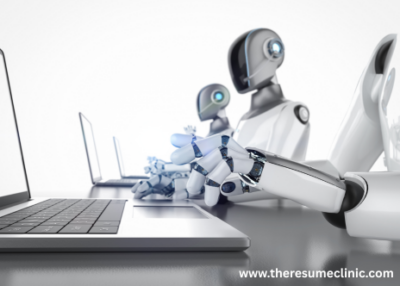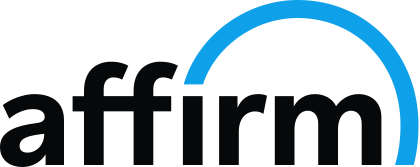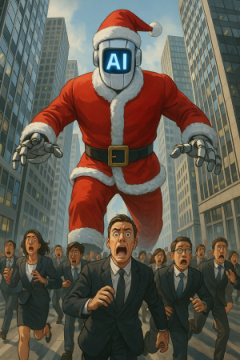 Okay, we all have been reading about it, many of us have only lightly concerned ourselves with it, and some have even completely ignored it.
Okay, we all have been reading about it, many of us have only lightly concerned ourselves with it, and some have even completely ignored it.
But we are here.
As automation and intelligent systems take over more functions across industries, professionals (younger and older) must be prepared to adapt. AI is not just a tool used in tech companies and future-proofing your career in the age of AI is no longer optional. Understanding how to navigate these changes is key to remaining employable and relevant.
It is already transforming roles in marketing, finance, healthcare, customer service, education, and countless others, reshaping the workforce. According to a 2023 report from Goldman Sachs, intelligent systems could potentially replace 300 million full-time jobs globally.
Translation: 300 million jobs-go-POOF!
These changes will not only affect entry-level roles. Even knowledge work is undergoing a shift as machine learning begins to perform tasks once reserved for human judgment. But this does not mean careers are ending. It means they are evolving—and future-proofing means evolving with them.
One of the most effective ways to remain relevant in a world powered by automation is to strengthen human-centric skills. Qualities such as creativity, empathy, communication, and leadership continue to be valuable in the workplace because machines are still limited in replicating them. These abilities influence team collaboration, customer satisfaction, and strategic problem-solving. Professionals who sharpen these soft skills create a competitive edge against roles that are vulnerable to replacement.
Equally important is technological fluency. Future-proofing your career involves more than avoiding displacement. It means engaging with advanced tools as collaborators. Learning the basics of how intelligent systems operate (such as natural language processing or predictive analytics) can help you work alongside them rather than be replaced. You do not need to be a data scientist, but awareness of this technology’s impact on your industry is essential.
Professionals should also focus on cross-disciplinary knowledge. Automation thrives in environments where data is structured and outcomes are measurable. However, the ability to connect knowledge from different fields provides perspective that algorithms lack. For example, combining knowledge of behavioral psychology with user experience design can enhance how digital tools are built. Future-proofing means building a broad toolkit that is difficult to automate.
According to the World Economic Forum’s 2023 Future of Jobs report, 50% of all workers will require reskilling within the next 2 years. AI is a major reason behind that shift. Future-proofing your career means embracing lifelong learning. Certifications, short courses, and micro-degrees are more accessible than ever and allow professionals to stay current without taking time away from work. Staying informed and proactive is one of the best defenses against job disruption.
Strategic networking also plays a critical role in remaining visible and resilient in an increasingly automated market. As more hiring processes become digitized, personal referrals and relationships carry more weight. Connecting with thought leaders, joining professional groups, and attending industry events create visibility that algorithms cannot replace. Networking also keeps you informed of emerging roles influenced by technological change, helping you pivot when needed.
Another part of future-proofing your career involves understanding where automation falls short. Smart systems cannot replicate context, ethics, or emotional nuance. In high-stakes industries such as law, medicine, and human services, these elements matter deeply. Professionals who demonstrate judgment, discretion, and social awareness offer irreplaceable value. Investing in these competencies not only protects your role but elevates your impact.
Resilience is about both skill AND mindset. Those who resist change may find themselves left behind. But those who engage with curiosity and a willingness to re-skill often uncover new paths. Many roles that exist today didn’t exist 5 years ago. Future-proofing your career means preparing for roles that have yet to be imagined.
This technological shift is also driving demand for more responsible leadership. Professionals who understand the ethical implications of intelligent systems, such as bias in algorithms or data privacy, will be better positioned for roles that require accountability. Understanding the impact of these platforms on people and society adds a layer of strategic thinking that sets candidates apart.
The future belongs to those who are not only capable, but adaptable. AI will continue to change how we work, but it will not eliminate the need for human insight, creativity, and judgment. Future-proofing your career is about making sure that your value cannot be replicated by code. Be proactive, stay curious, and remain open to change—because the workplace of tomorrow is already being shaped today.
























